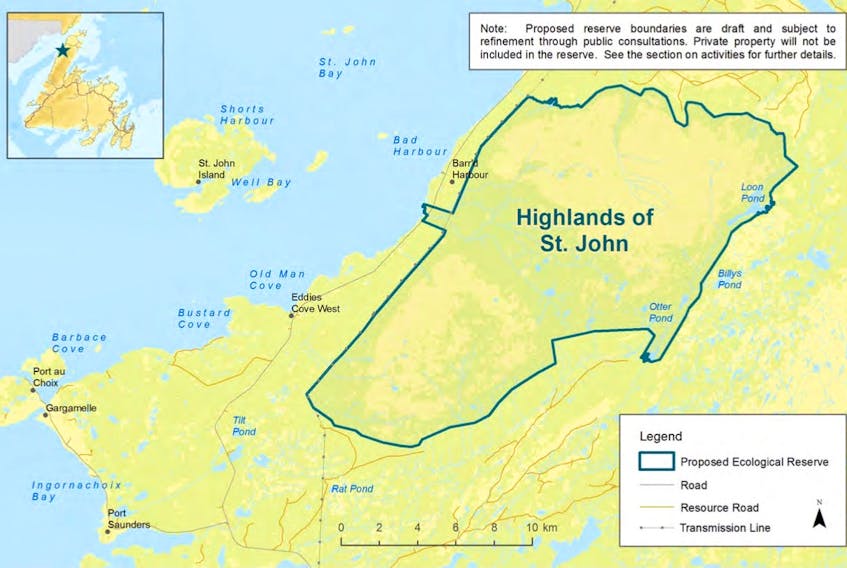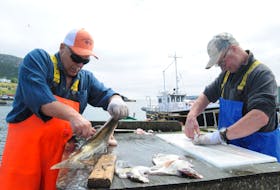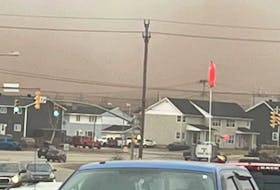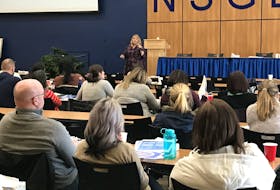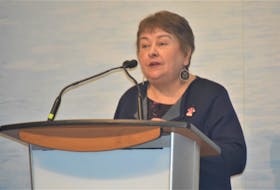CORNER BROOK — Tom Maynard came home to Newfoundland five years ago with a plan to buy out his family’s business on the Northern Peninsula and build on the tourism potential for the region.
“The whole thing about having the business up there was because we could promote the outdoors,” said the owner of the Torrent River Inn and Pizza Delight in Hawke’s Bay.
With opportunities for hunting, fishing, and snowmobiling and ATV travel, Maynard saw the region as “an untapped market.”
“I know that I could make those areas grow in northern Newfoundland. But I can’t make it grow if there’s somebody saying you cannot snowmobile here, you cannot fish here, you cannot ATV here, you cannot use this land. If I can’t promote the outdoors, then tell me what I can promote. There’s nothing.” — Tom Maynard
Now he fears his business, which has been family-run since 1961, will take a hit if the Wilderness and Ecological Reserves Advisory Council (WERAC) plan to classify several areas on the Northern Peninsula as protected areas goes through.
“I know that I could make those areas grow in northern Newfoundland. But I can’t make it grow if there’s somebody saying you cannot snowmobile here, you cannot fish here, you cannot ATV here, you cannot use this land.
“If I can’t promote the outdoors, then tell me what I can promote. There’s nothing.”
Because he believes it will threaten the entire premise of his business, Maynard is adding his voice to the growing opposition to the plan as co-chair of the United Against WERAC Standing Committee.
“Everything that I’ve put on the line is in jeopardy because of what’s happening,” he said.
“It’s something we feel has been driven down our throat and has come out of nowhere, and now we have people telling us what we’re going to be able to do in our own backyard.
“I cannot live with it.”

That’s a sentiment committee co-chair Sheila Fitzgerald is also hearing.
The mayor of Roddickton-Bide Arm said it has been unbelievable to see how people have been angered by the WERAC report, which came out in May.
Fitzgerald said residents in her community immediately said the plan didn't sound right, and that’s a view the regional council — which takes in Main Brook, Conche, Roddickton-Bide Arm and Englee — agreed with.
She said there’s a feeling the report came out at the wrong time, during the COVID-19 pandemic. At first, people were given only 30 days to provide written feedback on the report, but although that has been extended to the first of October, Fitzgerald would like to see some public meetings take place.
“Everybody who's been around over the years, who’s so connected with the land, would be able to tell some of the history and what some of their concerns and worries are," she said, adding there is a feeling among the people their opinions and interests won’t be heard.
“We want to be able to maximize any opportunity above and below the soil. We desperately need economic growth and development. We need a reason for our young people to come back.” — Roddickton-Bide Arm mayor Sheila Fitzgerald
Roddickton-Bide Arm is a forestry town, its population is aging and the economy is suffering as young people move away.
With the WERAC report talking about protecting the land from future industrial uses, Fitzgerald says she worries that will hurt the economy more as it prevents development, especially an area that is rich in mineral deposits.
“We want to be able to maximize on any opportunity above and below the soil,” she said.
“We desperately need economic growth and development. We need a reason for our young people to come back.”
She says traditional activities will be affected and there will be an added layer of red tape to get access to land and development.
The committee has circulated a petition throughout the Northern Peninsula that it hopes to present in the House of Assembly when it opens.
It also sent letters requesting a meeting with Long Range Mountains MP Gudie Hutchings, area MHA Christopher Mitchelmore and Fisheries and Land Resources Minister Gerry Byrne, but have yet to receive responses.
“We want to be heard,” she said, adding that their message about the WERAC plan is a succinct one.
“We don’t want it.”

In June, WERAC chair Graham Wood said concerns are premature, as the plan is far from finalized.
“This is a long-term process,” said Wood, noting it took 25 years just to get the proposal out.
It still has to go through cabinet, and the committee is gathering information from the public, interest groups and stakeholders.
The government’s Engage NL website says the boundaries proposed in the plan are not final, and there will be two phases of public engagement. The first is ongoing until Oct. 1. The second will be a consultation process for each individual proposed reserve.
Twitter: WS_DianeCrocker

